To market, to market: A guide for going to market for a MEL consultant
By Kaitlyn Scannell, Lead Principal Consultant, Clear Horizon, and Cynthia Scherer, General Manager, Anthony Costa Foundation
MEL consultants play a vital role in the broader ecosystem. Beyond simply filling gaps in knowledge or capacity, they bring two key “superpowers”:
- A system-wide perspective – the capacity to see across organisations and sectors, recognising patterns, trends, and opportunities that others might miss.
- Deep, transferable expertise – the experience, skills, and wisdom gained from tackling similar challenges in different contexts.
Finding the right MEL consultant and setting them up for success can create real value. Going to market for a consultant might seem intimidating, so we’ve put together this straightforward guide to help you approach the process with confidence.
Questions to ask yourself as you’re preparing a Request for Proposal (RFP)
1. Why are you going to market for a consultant?
There are many reasons to engage a consultant, but the three most common are: you need specialised expertise, you have a capacity gap, or you want an independent perspective. Knowing why you’re going to market can help you decide which consultants to approach. Being clear about your purpose allows the consultant to tailor their proposal to meet your specific needs.
2. What do you need?
Explaining your needs can be tricky. If your scope is too broad, the consultant might not meet your expectations. On the other hand, if it’s too detailed, you may limit chances for new ideas and innovative methods. The best way is to be clear about what’s non-negotiable while leaving room for creativity. In other words, set clear boundaries and non-negotiables, outline the desired outcomes, and encourage the consultant to suggest the best way to achieve them.
3. What is your budget for this work?
Sharing your budget upfront can feel awkward, especially if you’re unsure about how much to set aside. Even providing a rough range is very helpful for consultants and allows you to compare the proposals you receive meaningfully.
4. What is your capacity for this work?
All consulting arrangements require clients to invest time and effort to succeed. Knowing how much time you need to commit and what the consultant can expect from your contribution will help ensure the proposals you receive are workable and offer good value for money. For example, if you’re able to manage specific tasks like event planning, data collection, or participant recruitment, let the consultant know so they won’t need to include those in their budget.
5. How do you want to work?
Your how can be just as important as your what. Consider the principles that matter to you—such as collaboration, transparency, or equity—and the kind of relationship you want with the consultant. Being clear about how you hope to work together helps ensure alignment in values, expectations, and work methods from the outset.
6. What else would be helpful for the consultant to know?
If something is likely to significantly affect the project, please inform potential consultants early, either in the RFP documentation or through a briefing. Examples include
Project context and dependencies
-
- “There’s a meeting where early findings will need to be shared to support decision making.”
Team and stakeholder consideration
-
- “I’m planning to take three months’ leave during the project.”
- “We have an internal MEL team.”
Logistics and timing
-
- “Field work needs to take place during the school term.”
Existing documentation/data
-
- “We have an existing theory of change/ strategy/ MEL Framework that will need to be considered.”
RFP Checklist
Before you go to market, it’s helpful to check that your Request for Proposal (RFP) includes the key information consultants need to prepare a strong, relevant proposal. The checklist below outlines the core elements every RFP should contain:
-
- Clear Purpose and Scope – the guardrails and the outcomes
- Background information – context
- Deliverables and Timeframes – deliverables and key milestones
- Budget and Resources – a budget range and what other resources are available
- Proposal Requirements – what you expect proposals to include
- Evaluation Criteria – how the proposals will be assessed
- Requests for additional information – outline how and who
- Submission Details – how and when the proposals should be submitted
Remember: Your RFP doesn’t have to be lengthy. Two pages are often sufficient. What consultants need is a clear understanding of your objectives, your timeline, and how their proposal will be evaluated.
Finding MEL Consultants
The MEL consulting ecosystem in Australia is vibrant and diverse, with consultants offering a wide range of skills, perspectives, and experience. This diversity strengthens the sector, allowing organisations to access a broad spectrum of methodologies, viewpoints, and capabilities to support them. Here are a few ways to find MEL consultants:
-
- Word of Mouth – Reach out to your peers for recommendations. Colleagues and sector networks often have firsthand experience working with consultants and can provide insights into their approach, reliability, and fit for specific types of projects and may align well with your organisation’s values and needs.
- The Australian Evaluation Society Consultants Directory – The AES Consultant Directory provides details of AES members who provide commercial evaluation services. You can also publicise your tender for evaluation services on the AES website.
- The Ian Potter Foundation Evaluation Panel (TIPFEP) – The Ian Potter Foundation created The Ian Potter Foundation Evaluation Panel (TIPFEP), which identifies high-quality evaluators that they can recommend to grantees seeking external evaluation.
We’re here to help!
We hope this guide was helpful in demystifying the process of finding the right MEL consultant for your project. If you are looking to going to market for a consultant and you have further questions, we encourage you to reach out to Kaitlyn Scannell, or to us via email.




